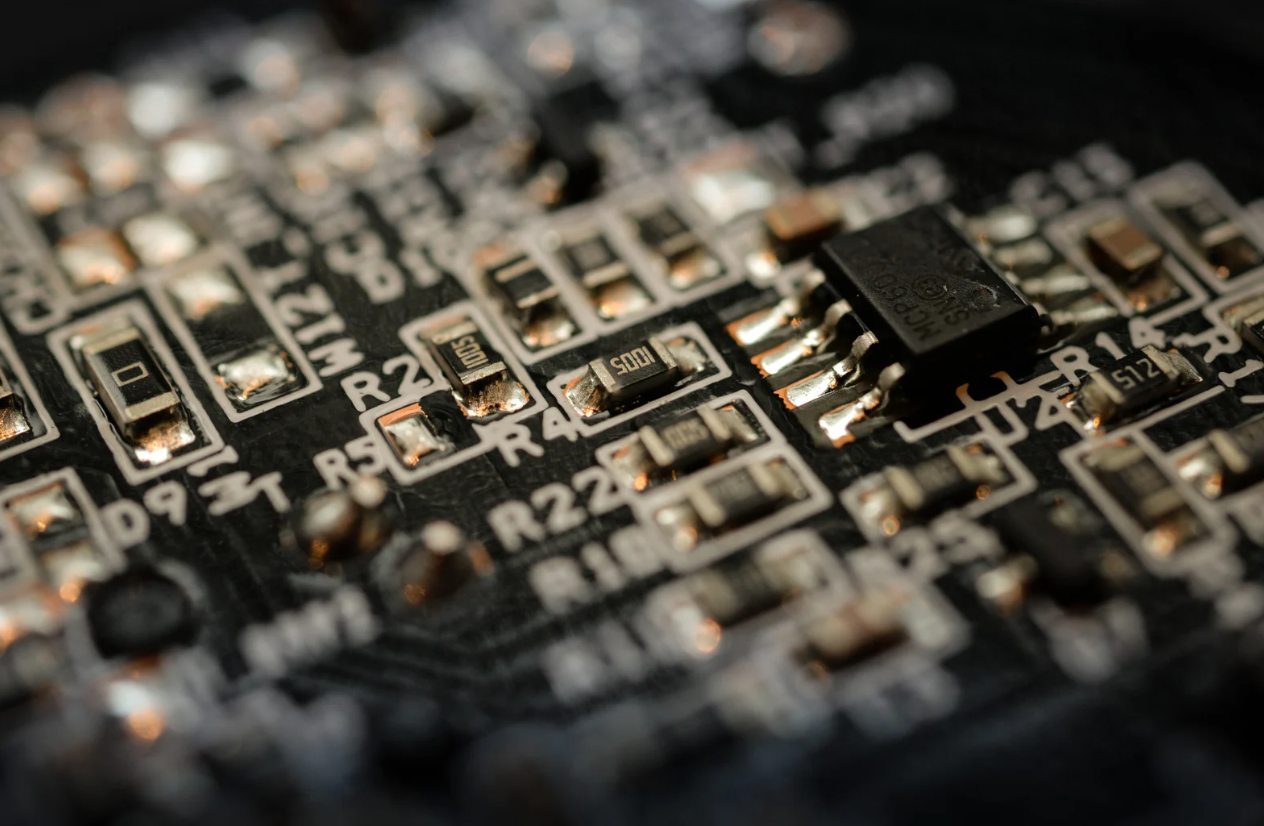NXP Acquires TTTech Auto: An Automotive Industry Game-Changer

More from the Category
The automotive industry is undergoing a seismic shift, driven by the rise of software-defined vehicles. At the heart of this transformation is the need for smarter, safer, and more connected systems — a challenge that requires both hardware expertise and cutting-edge software solutions. Enter NXP Semiconductors, a global leader in automotive electronics, and TTTech Auto, a pioneer in safety software and networked systems.
This acquisition is a clear signal of where the market is heading. As vehicles evolve from mechanical machines to software-driven platforms, the demand for integrated solutions that combine hardware and software is skyrocketing. NXP’s decision to bring TTTech Auto into its fold underscores the growing importance of safety, connectivity, and real-time computing in next-generation vehicles.
The Deal: What Happened and Why It Matters
In January 2025, NXP Semiconductors announced its acquisition of TTTech Auto for $625 million. The deal is a strategic play by NXP to strengthen its position in the rapidly evolving world of software-defined vehicles. But to understand why this acquisition matters, we need to look at what both companies bring to the table.
NXP’s Strategic Rationale
NXP is a leading supplier of semiconductors for vehicles, and its chips power everything from infotainment systems to advanced safety features. However, the automotive industry’s shift toward software-defined vehicles has created new challenges — and opportunities. These next-generation vehicles rely heavily on software for functionality, from autonomous driving to over-the-air updates. By acquiring TTTech Auto, NXP gains access to cutting-edge safety software and networked computing platforms, filling a critical gap in its portfolio.
TTTech Auto’s Expertise
TTTech Auto, a spin-off of the Austrian company TTTech, specializes in safety software and real-time networking solutions. Its flagship product, MotionWise, is a software platform designed to handle the complex data flows required for autonomous driving and ADAS. With a strong focus on functional safety and reliability, TTTech Auto has become a trusted partner for major automakers and Tier 1 suppliers. Its expertise complements NXP’s hardware strengths, creating a powerful combination.
Why This Deal Matters
The acquisition is a clear response to the industry’s growing demand for integrated solutions. As vehicles become more software-driven, the lines between hardware and software are blurring. Automakers need partners who can deliver both, and NXP’s move positions it as a one-stop shop for automotive electronics. The deal also reflects the increasing importance of safety and security in next-generation vehicles, areas where TTTech Auto excels.
But beyond the immediate benefits, this acquisition signals a broader trend: the convergence of hardware and software in the automotive industry. For engineers and industry professionals, it’s a reminder that the future of automotive innovation lies in collaboration — between companies, technologies, and disciplines.
The Bigger Picture: Software-Defined Vehicles Take Center Stage
The automotive industry is no longer just about horsepower and torque. Today, it’s about software, connectivity, and intelligence. The rise of software-defined vehicles represents a fundamental shift in how cars are designed, built, and operated. These vehicles are essentially computers on wheels, relying on sophisticated software to deliver everything from advanced driver-assistance systems (ADAS) to autonomous driving capabilities. NXP’s acquisition of TTTech Auto is a direct response to this transformation — and a sign of what’s to come.
What Are Software-Defined Vehicles?
Software-defined vehicles are built around centralized computing architectures, where software controls most of the vehicle’s functions. Unlike traditional cars, which rely on dozens of isolated electronic control units (ECUs), these vehicles use high-performance computers to manage everything from infotainment to safety systems. This shift enables greater flexibility, scalability, and the ability to update and upgrade vehicles over the air.
The Role of Automotive Electronics
At the heart of this transformation is automotive electronics. From sensors and processors to communication modules, these components form the backbone of software-defined vehicles. NXP has long been a leader in this space, providing the hardware needed for ADAS, vehicle-to-everything (V2X) communication, and more. But as software becomes increasingly critical, the ability to integrate hardware and software seamlessly is essential.
TTTech Auto’s Contribution
This is where TTTech Auto comes in. The company’s expertise in safety software and real-time networking is a perfect fit for the challenges of software-defined vehicles. Its MotionWise platform, for example, is designed to handle the complex data flows required for autonomous driving, ensuring safety and reliability. By integrating TTTech Auto’s software solutions with its own hardware, NXP is positioning itself as a key player in this new era of automotive innovation.
The Impact on the Industry
Automakers are increasingly partnering with tech companies to develop the software and electronics needed for next-generation vehicles. At the same time, traditional suppliers are adapting to stay relevant. NXP’s acquisition of TTTech Auto is a prime example of this trend, highlighting the importance of collaboration and integration in driving innovation.
For engineers and industry professionals, this shift presents both challenges and opportunities. On one hand, it requires a new set of skills and expertise, particularly in software development and systems integration. On the other hand, it opens up new possibilities for innovation, from AI-driven safety systems to connected vehicle ecosystems.
Implications for the Automotive Electronics Industry

By combining NXP’s hardware expertise with TTTech Auto’s software prowess, the deal has the potential to accelerate innovation, reshape competitive dynamics, and set new standards for safety and performance.
Strengthening NXP’s Portfolio
NXP has long been a dominant player in automotive semiconductors, with a strong presence in areas like ADAS, vehicle networking, and infotainment. With TTTech Auto’s safety software and real-time networking solutions, NXP can now offer a more comprehensive suite of products, addressing both the hardware and software needs of modern vehicles. This positions NXP as a one-stop shop for automakers looking to develop next-generation vehicles.
Raising the Bar for Safety and Security
Safety is a top priority in the automotive industry, especially as vehicles become more autonomous and connected. TTTech Auto’s expertise in functional safety and networked systems complements NXP’s focus on secure and reliable hardware. Together, the two companies can deliver solutions that meet the highest safety standards, from ISO 26262 compliance to robust cybersecurity measures. This could set a new benchmark for safety in automotive electronics, pushing competitors to up their game.
Accelerating Innovation
The integration of hardware and software is key to unlocking the full potential of software-defined vehicles. By combining forces, NXP and TTTech Auto can streamline the development process, reducing time-to-market for new technologies. This could lead to faster adoption of innovations like centralized vehicle architectures, AI-driven ADAS, and over-the-air updates.
Impact on Competitors
The acquisition is likely to intensify competition in the automotive electronics market. Companies like Infineon, Qualcomm, and Texas Instruments will need to respond to NXP’s strengthened position, potentially through their own acquisitions or partnerships. This could lead to a wave of consolidation in the industry, as players seek to build end-to-end capabilities in hardware and software.
Challenges and Opportunities
While NXP’s acquisition of TTTech Auto presents significant opportunities, it also comes with its share of challenges. Successfully integrating two companies with distinct cultures, expertise, and technologies is no small feat. At the same time, the deal opens up new possibilities for innovation and growth.
Integration Risks
Merging two companies is always a complex process, and this deal is no exception. NXP and TTTech Auto have different strengths — NXP in hardware and TTTech Auto in software — which means aligning their operations, teams, and technologies will require careful planning. Key challenges include:
• Cultural Differences: Bridging the gap between a semiconductor giant and a software-focused innovator.
• Technical Integration: Ensuring seamless compatibility between NXP’s hardware and TTTech Auto’s software platforms.
• Customer Retention: Maintaining trust and relationships with existing customers during the transition.
Market Competition
The automotive electronics market is fiercely competitive, with players like Infineon, Qualcomm, and Texas Instruments vying for dominance. NXP’s strengthened position could prompt competitors to pursue their own acquisitions or partnerships, leading to a more consolidated industry. Staying ahead will require continuous innovation and a clear focus on customer needs.
Opportunities for Collaboration
Despite the challenges, the acquisition opens up exciting opportunities for NXP and TTTech Auto. By combining their expertise, the two companies can:
• Develop integrated solutions that address the full spectrum of automotive electronics needs, from hardware to software.
• Accelerate the adoption of emerging technologies like AI-driven ADAS, centralized computing architectures, and over-the-air updates.
• Expand their reach in key markets, including electric vehicles (EVs), autonomous driving, and connected cars.
The Role of Partnerships
Collaboration will be key to unlocking the full potential of this deal. NXP and TTTech Auto will need to work closely with automakers, Tier 1 suppliers, and other stakeholders to deliver solutions that meet the industry’s evolving needs. Building strong partnerships and ecosystems will be critical to driving innovation and staying competitive.
Implications for Engineers
For engineers, the acquisition highlights the importance of adaptability and cross-disciplinary expertise. As hardware and software become increasingly intertwined, professionals with skills in both areas will be in high demand. The deal also underscores the need for collaboration, both within companies and across the industry. Engineers working on automotive electronics will need to think beyond individual components, focusing instead on integrated systems that deliver seamless performance.
If you’re working on automotive systems that leverage components from NXP or other semiconductor manufacturers, Microchip USA is the best choice to supply them. Our team of experienced procurement professionals prides itself on delivering what our customers need, when they need it, and we know how to deliver — even in the face of supply chain disruptions. Whatever electronic components you need, we’ll source them for you while providing the best customer service in the industry. Contact us today!









